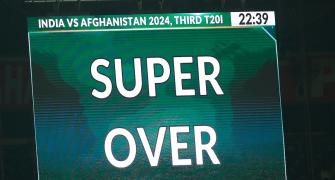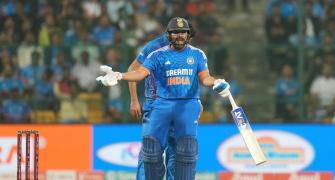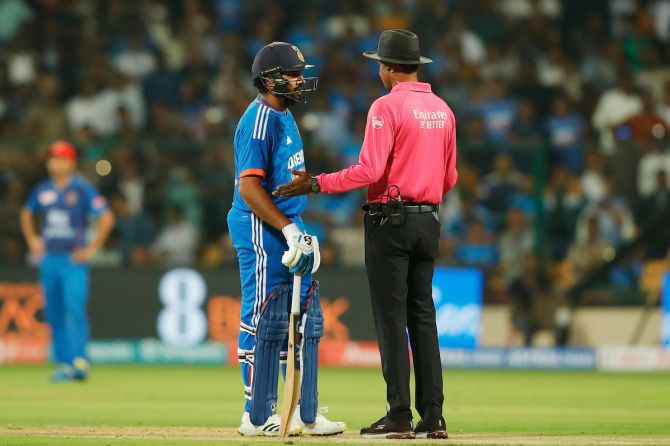
Rohit Sharma's stellar performance with the bat, including a career-best score of 121 and his fifth T20I century, set the stage for an unforgettable encounter between India and Afghanistan in the third and final match of the series at the M Chinnaswamy stadium in Bengaluru on Wednesday, January 17, 2024.
The match, filled with high drama, ended in two Super Overs after both teams scored 212 runs in the regulation 40 overs.
Despite India's strong start with a 93-run opening partnership, Afghanistan's Rahmanullah Gurbaz and Ibrahim Zadran built a solid foundation.
Mohammad Nabi's quickfire 34 off 16 balls provided a boost, and Gulbadin Naib sustained the momentum. Naib's sensational 55 off 23 balls propelled Afghanistan to 212, tying the game. Naib's heroic knock came when 19 runs were needed in the final over, and he managed to secure 18.
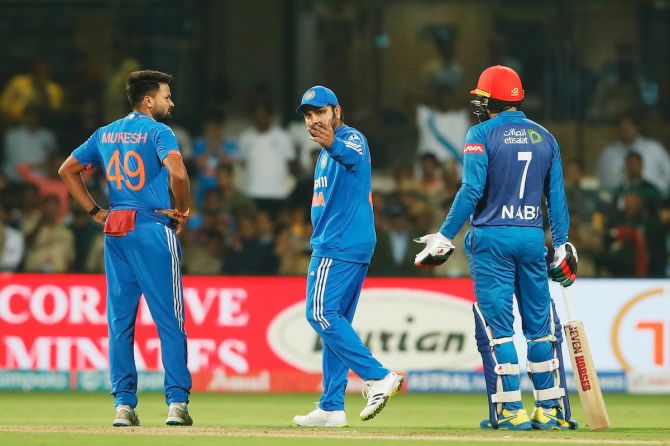
The Super Over unfolded with Afghanistan batting first. In a tense moment during the final delivery, a throw from wicket-keeper Sanju Samson hit Mohammad Nabi, resulting in two overthrows, pushing Afghanistan's Super Over total to 16 runs.
Rohit Sharma, visibly displeased, argued with Nabi and the umpires, but the two extra runs were within the laws of the game.
In India's Super Over chase, Rohit, partnering with Yashasvi Jaiswal, faced some challenges. Rohit retired out when 2 runs were needed from 1 ball, and Rinku Singh replaced him. The first Super Over ended in a tie, leading to another Super Over.
Questions arose about Rohit's eligibility to bat again in the second Super Over after retiring out in the first. The match officials clarified that Rohit could bat as he was not dismissed in the initial Super Over.
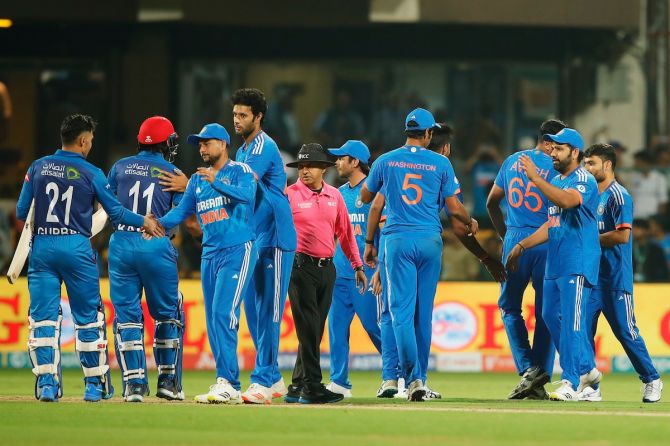
The MCC playing conditions for Super Overs indicate their status as additional playing conditions, subject to variations across competitions and formats. The ICC’s T20I Playing Conditions take precedence, with Appendix F detailing Super Overs. Clause 22 specifies that any batter dismissed in a previous Super Over is ineligible for subsequent Super Overs.
In accordance with Laws 25.4.2 and 25.4.3, a batter can resume their innings if they retire due to illness, injury, or unavoidable causes; otherwise, they are recorded as 'Retired - not out.' Resuming innings for reasons other than those mentioned requires the opposing captain's consent, or the batter is recorded as 'Retired - out.'
In the context of tied Super Overs, any batsman dismissed in a prior Super Over is ineligible for subsequent ones. Contrary to suggestions, Rohit's ability to bat again wasn't due to retiring hurt. A batter can only retire not out due to illness, injury, or unavoidable causes.

Rohit's choice to bat in the second Super Over suggests his capability, potentially sparking controversy with the decision.
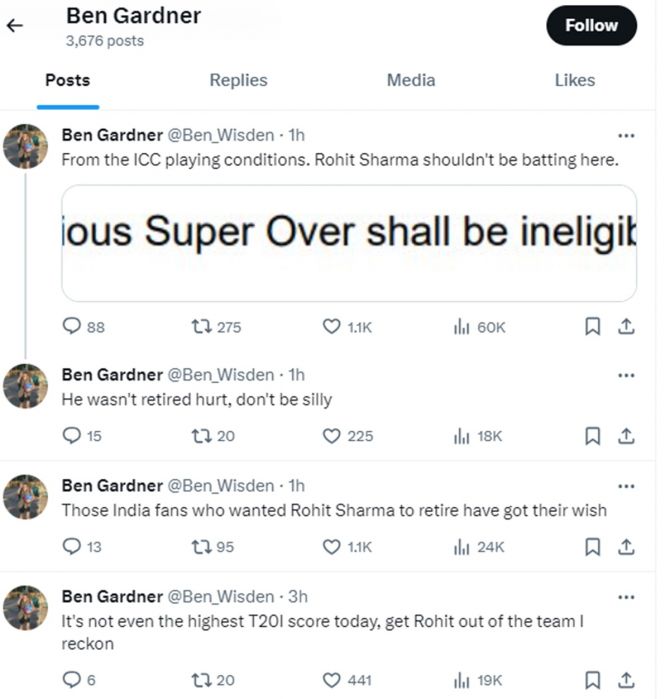
During the post-match show, former India wicket-keeper Parthiv Patel shared his thoughts on the controversy. 'Rohit Sharma was retired out and yet he came out to bat in the second Super Over. He shouldn't have because he was retired 'out' and not 'hurt'. I think that's something the umpires missed out there,' he said.
In the second Super Over, India struggled and eventually scored only 11 runs. Ravi Bishnoi played a pivotal role, taking 2 wickets and conceding just 1 run, securing the series win for India.

